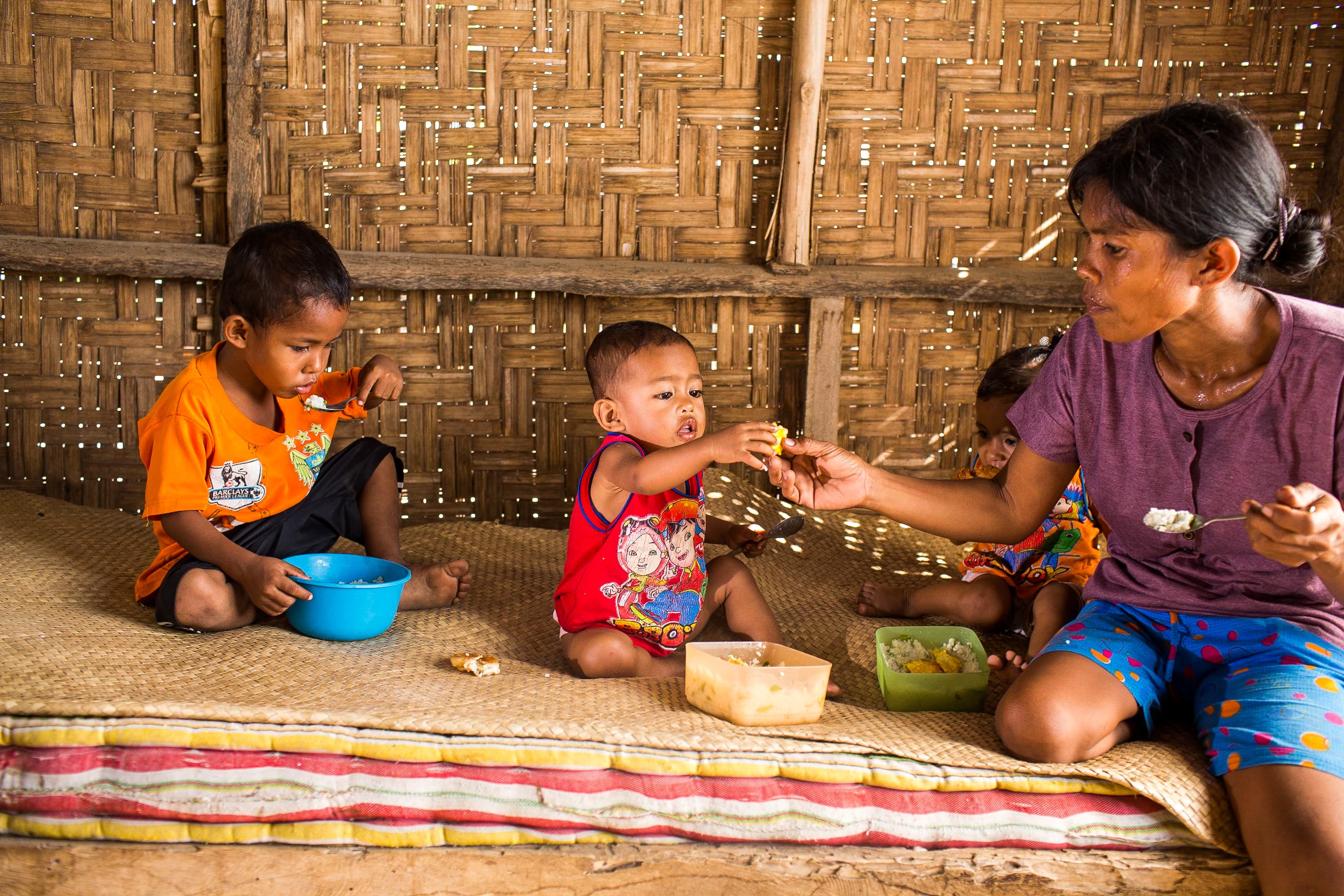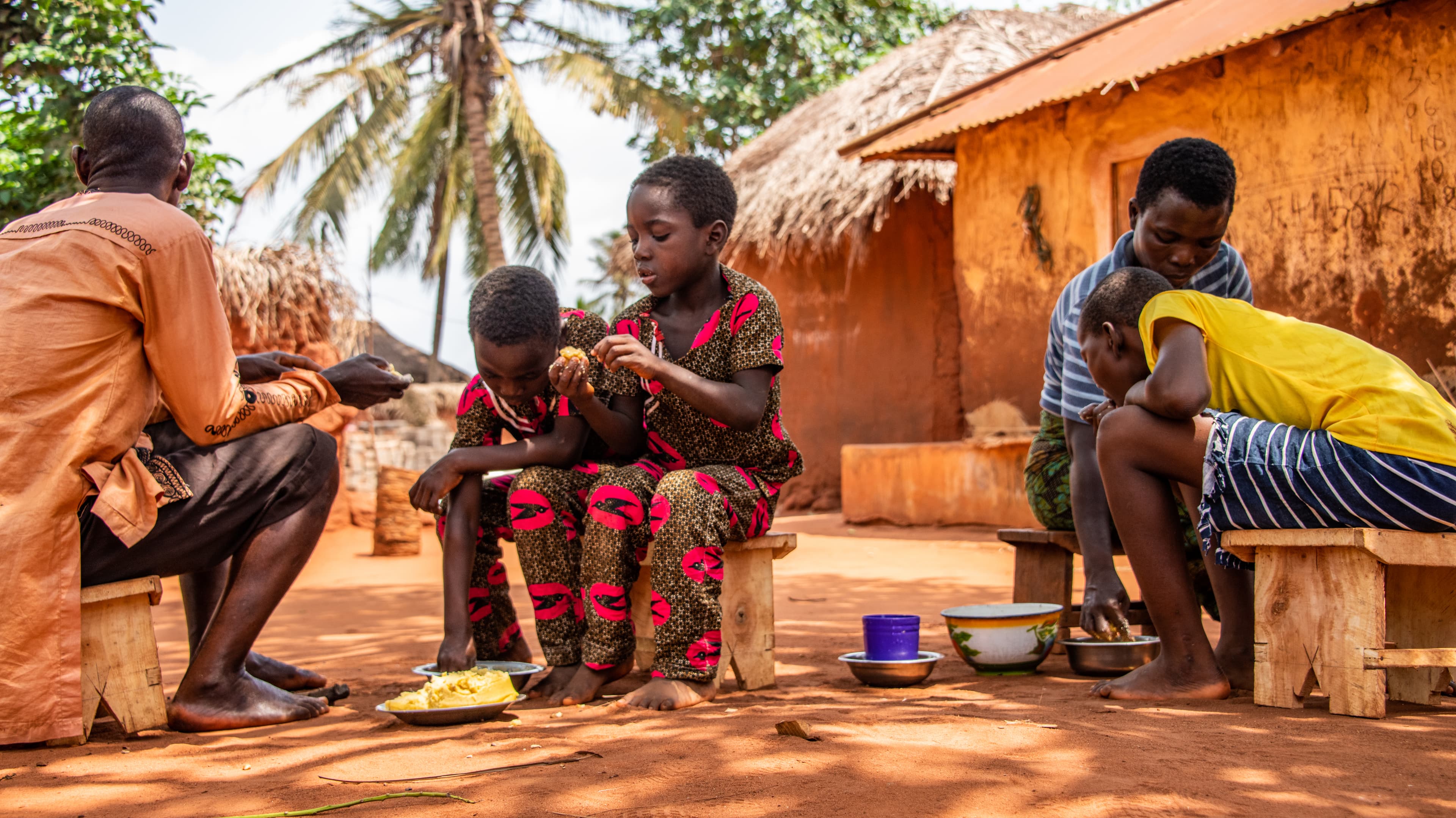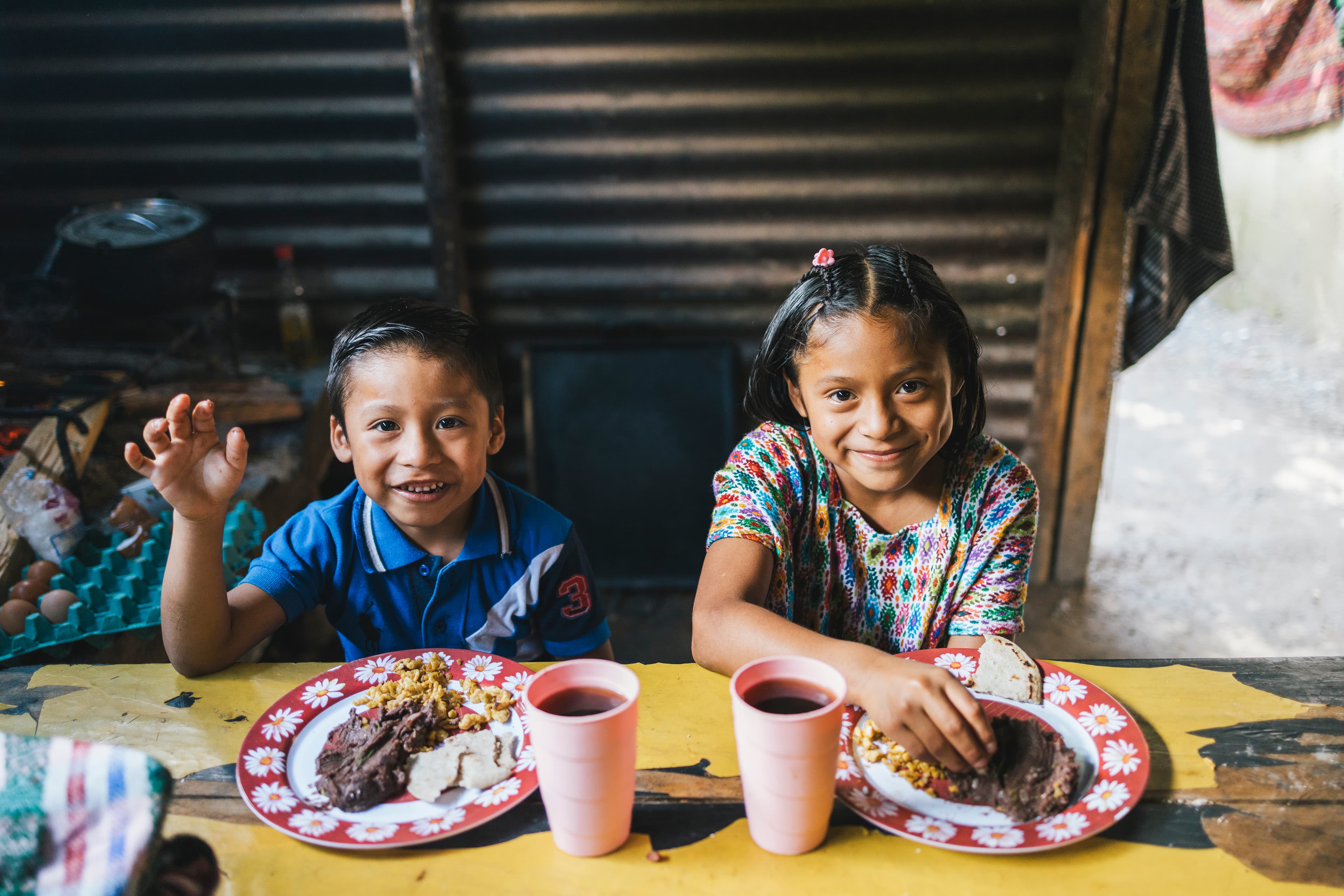
Help Fight Global Hunger
Around the world, children and families are suffering from hunger. We need your support to fight back. $100 could provide two families (10 people) with a one-month supply of essentials like rice, eggs, meat, milk and corn.
The Impact of World Hunger on Children Can't Be Ignored
149 Million
children (about one in five worldwide) are chronically malnourished.
9.9%
of people globally are affected by world hunger, which has been worsened by the food crisis.
3.1 Million
children die from malnutrition each year.

Your Donation Provides Food to Those in Need
The world is facing a severe food shortage, and children are most vulnerable.
Disasters such as the 2020 pandemic, severe weather and war have resulted in a global food crisis. And children living in poverty are the hardest hit.
Our church partners see every day how hunger is harming children, keeping them from their full potential.
When we equip local churches with food and resources, they can help stabilize their communities in the short term while providing long-term hunger mitigation — all in Jesus’ name.
Your Contributions Are Stewarded Wisely
Every gift you give through Compassion is handled with integrity and care. We follow strict financial guardrails to ensure accountability, transparency and the flexibility to invest wisely for long-term impact. Here’s a brief explanation of how funds are allocated:
In fiscal year 2025, 80% of every dollar went straight to program work through our local church partners — including education, medical care, nutrition, child protection and sharing God’s love with children living in poverty and their families.


You Can Give a Hungry Child Hope
"I remember the day I witnessed a child at the center eat four plates of food and ask for another. We asked him why he was eating like that. His answer broke our hearts: 'I’m eating because I don’t know when I’m going to eat again.'" —
Pastor Gleydson, Brazil